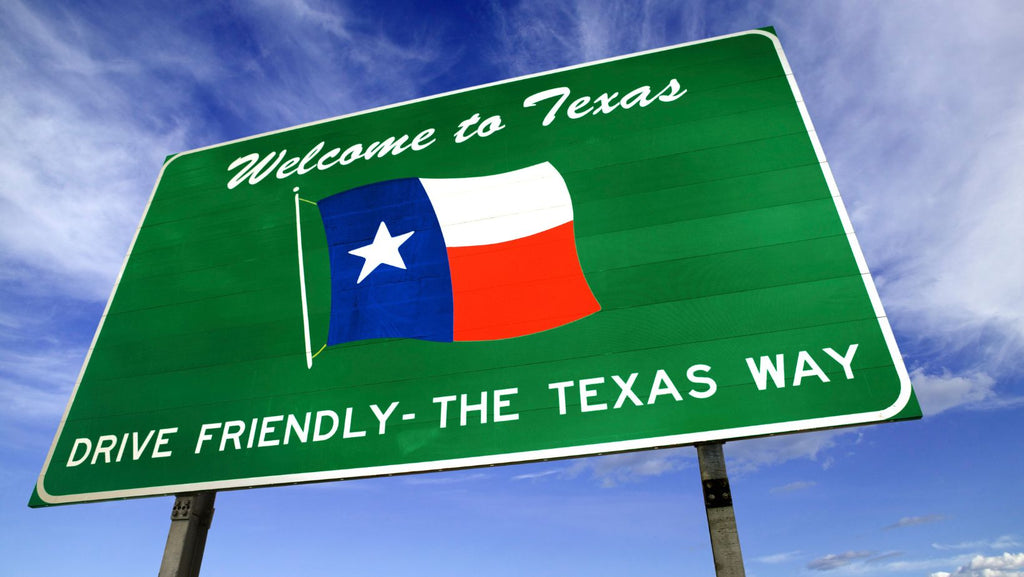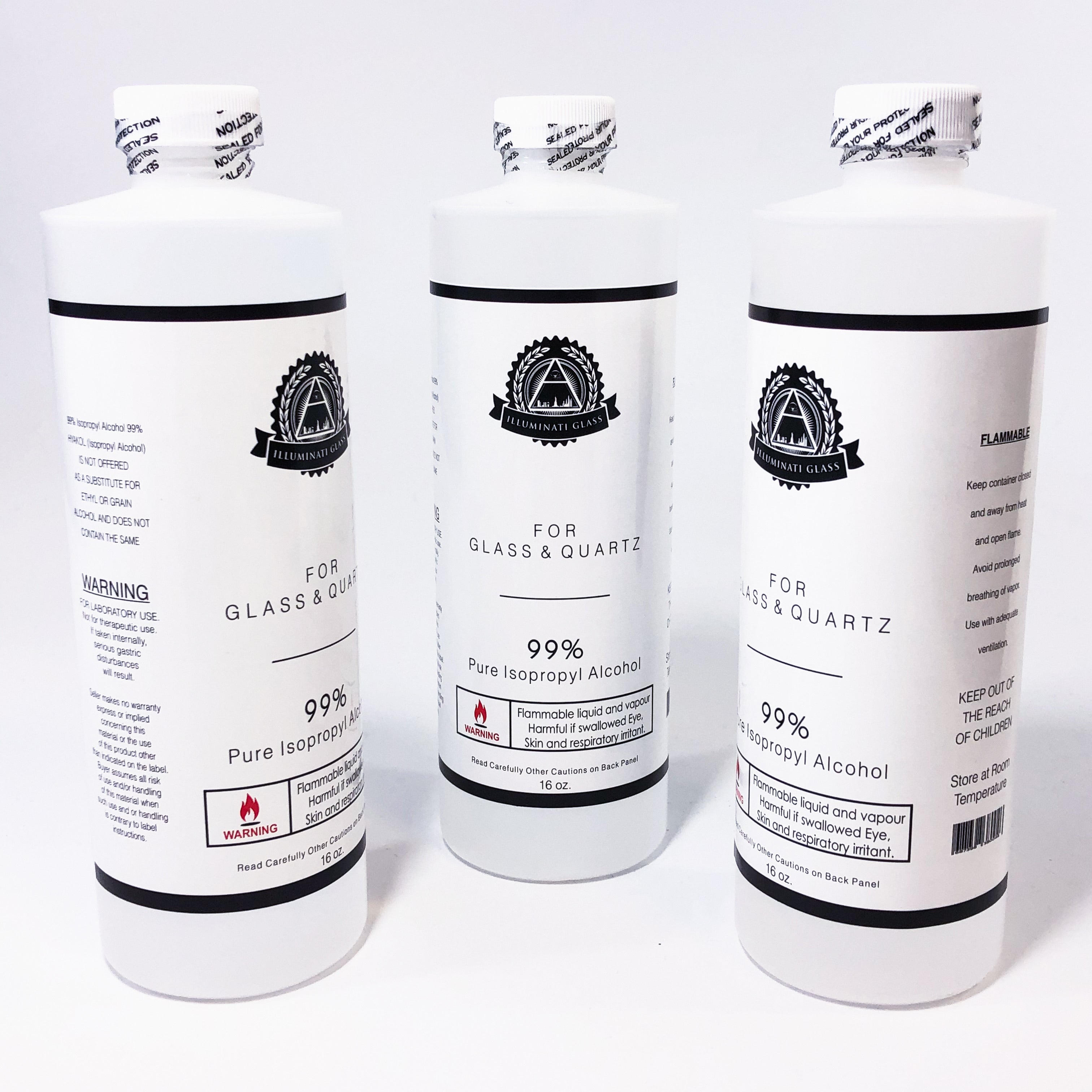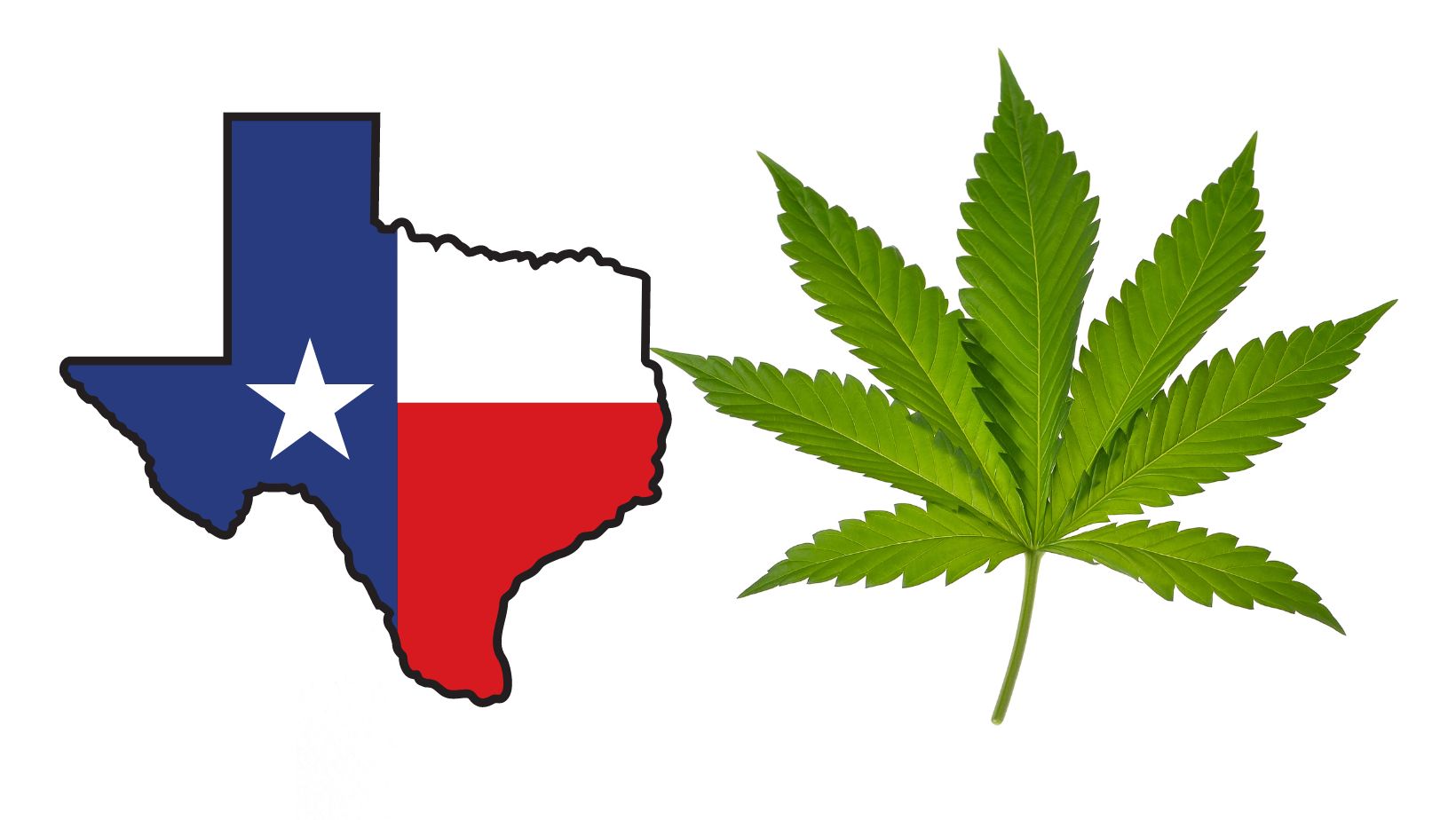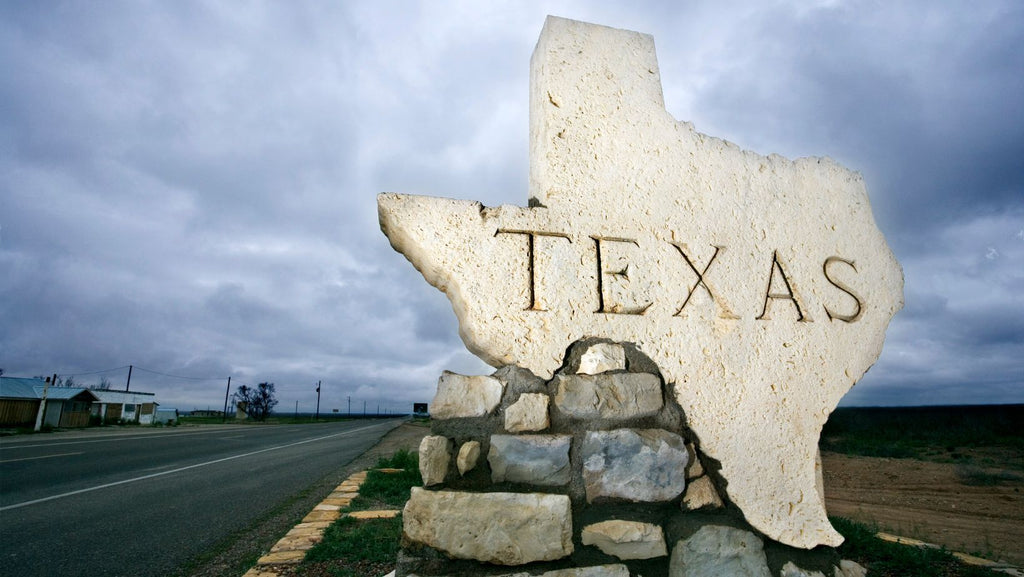Shipping Delta 9 Products In and Out of Texas
Texas has established a Consumable Hemp Program, which sets the regulations for anyone looking to sell or transport hemp products within the state. To participate in the hemp-derived cannabinoid market in Texas, several specific criteria must be met.
Licensing and Registration in Texas
Texas requires an online licensing process for consumable hemp manufacturers and distributors and registration for retail sellers of Consumable Hemp Products (CHPs). If you are selling CHPs in Texas without modifying the products or their packaging, including adding names or logos, or if you sell online without physical locations, a Retail Hemp Registration is necessary.
For those involved in the manufacturing of CHPs, including activities like compounding, processing, packaging, and labeling, a Consumable Hemp Product License is mandatory. This also applies to retailers who engage in white labeling or private labeling of their products or those selling wholesale.
Legal Requirements for Applicants
Applicants must also submit fingerprints and undergo background checks. Required documentation includes a completed FBI Authorization Form, a Hemp Property Owner Letter, and a legal property description with coordinates.
Advantages of Online Shopping for Delta 9 Products
The USPS has clarified that hemp products can be legally and safely shipped within the U.S., making online purchases of delta 9 products, like delta 9 gummies, a viable option. Online shopping offers several advantages over in-person purchases due to the lack of FDA regulation over the manufacturing or distribution of hemp-derived cannabinoids.
Comparison of Online vs. In-Person Shopping
Shopping online for hemp-derived delta 9 is often more beneficial than buying in person. Online stores typically provide more transparency and legitimacy, offering comprehensive ingredient lists and third-party lab testing results.
This ensures that you know exactly what you are consuming. Online reviews from nationwide customers can also offer insights into how companies source and manufacture their products.
In contrast, physical stores offer limited selection. When shopping online, you have the freedom to browse through thousands of products until you find exactly what suits your needs, all from the comfort of your home.
Comparison Table: Online vs. In-Person Shopping
| Feature |
Online Shopping |
In-Person Shopping |
| Variety |
Extensive selection |
Limited options |
| Transparency |
Detailed information |
Varies by store |
| Convenience |
Shop from home |
Must visit store |
| Insight |
Nationwide reviews |
Local feedback only |
| Regulation Info |
Third-party testing |
Not always available |
Comparing Texas Medical Cannabis and Hemp-Derived Delta 9
Texas has specific regulations for medical cannabis, capping THC levels in these products at 0.5%, which is only slightly higher than the federal limit of 0.3% for hemp-derived products. This minimal difference is advantageous for Texans who don't qualify for medical cannabis, although it may pose challenges for the medical cannabis industry itself.

Delta 9 THC, whether sourced from hemp or marijuana, is the same chemical entity, differing only in the THC concentration and the origin plant. This means that Texans can legally consume hemp-derived Delta 9 THC without a prescription, bypassing the medical cannabis system for similar benefits, given the negligible difference in THC content.
The legal status of hemp-derived Delta 9 THC in Texas effectively provides an accessible alternative for those seeking the therapeutic benefits of cannabis without navigating the medical prescription pathway.
Key Points to Consider:
- Texas medical cannabis laws restrict THC to 0.5%.
- Hemp-derived Delta 9 THC in Texas is capped at 0.3% THC.
- Both sources of Delta 9 are chemically identical.
- Hemp-derived options do not require a medical prescription.
- This accessibility benefits those outside the medical program.
- The small THC content difference minimizes the distinction between medical and hemp-derived products.
- Texans can explore hemp-derived products freely, thanks to their legality.
Delta 9 Legality in Texas vs Other States
The legality of Delta 9 THC, derived from hemp, varies widely across the United States, with Texas being one of the states that has embraced legal hemp-derived cannabinoids under specific regulations. This comparative analysis looks at how Texas stands alongside other states regarding the legality of Delta 9 THC.
In Texas, Delta 9 THC derived from hemp is legal as long as the product contains no more than 0.3% THC on a dry-weight basis. This regulation aligns with the federal standard set by the 2018 Farm Bill. However, the state strictly prohibits marijuana-derived Delta 9 THC for recreational use, with harsh penalties for possession.
Comparison with Other States
-
California: Legal for both recreational and medicinal use. There are no limits on the percentage of Delta 9 THC in products derived from marijuana.
-
Colorado: Similar to California, Colorado allows recreational and medicinal use of marijuana-derived Delta 9 THC.
-
Florida: Delta 9 THC is legal for medicinal use with a prescription, and recently, hemp-derived Delta 9 THC products containing up to 0.3% THC have been allowed.
-
New York: Recreational use of marijuana-derived Delta 9 THC was legalized in 2021, allowing adults to use and possess products with higher THC levels.
-
Georgia: Only allows hemp-derived Delta 9 THC with up to 0.3% THC; medicinal use of marijuana-derived products is restricted to CBD oil with low THC content.
-
Ohio: Medicinal use of marijuana-derived Delta 9 THC is permitted, but recreational use remains illegal. Hemp-derived is legal under federal guidelines.
-
Alabama: As of recent legislation, hemp-derived Delta 9 THC is legal, while marijuana-derived THC remains illegal except for strict medical conditions.
-
Oregon: Both recreational and medicinal uses of marijuana-derived Delta 9 THC are legal, with no cap on THC levels in products.
-
Mississippi: Medicinal use of marijuana-derived Delta 9 THC was legalized in 2021, while hemp-derived Delta 9 remains legal under federal law.
This brief overview shows that the approach to Delta 9 THC can vary significantly from one state to another, with some states having fully legalized marijuana-derived THC and others, like Texas, maintaining stricter controls.
| State |
Hemp-Derived Delta 9 Legal |
Marijuana-Derived Delta 9 Legal |
Notes |
| Texas |
Yes (up to 0.3% THC) |
No |
Strict penalties for marijuana |
| California |
Yes |
Yes |
Recreational use allowed |
| Colorado |
Yes |
Yes |
Recreational use allowed |
| Florida |
Yes (up to 0.3% THC) |
Medicinal only |
Prescription required |
| New York |
Yes |
Yes |
Recreational use allowed |
| Georgia |
Yes (up to 0.3% THC) |
Medicinal low THC only |
CBD oil with low THC |
| Ohio |
Yes (up to 0.3% THC) |
Medicinal only |
Prescription required |
| Alabama |
Yes (up to 0.3% THC) |
Medicinal only |
Strict conditions for medical |
| Oregon |
Yes |
Yes |
No restrictions on THC levels |
| Mississippi |
Yes (up to 0.3% THC) |
Medicinal only |
Medicinal use legalized 2021 |
Growth of Texas Cannabis Market: Delta 9 and Medical Marijuana
While recreational cannabis remains illegal in Texas, the state surprisingly permits the use of medical cannabis. However, this is restricted to "Low THC" products and is only available to a limited number of patients with specific conditions.
The medical cannabis sector is growing, and alongside it, the market for hemp-derived cannabinoids like delta 9 is also expanding. This raises questions about the potential impact of new legislation similar to the Farm Bill on Texas's medical cannabis industry.
Texas Medical Cannabis Regulations
Texas operates under a Compassionate Use Program, which authorizes certain doctors to prescribe low THC cannabis for designated medical ailments. In Texas, "Low THC" is defined as products derived from the Cannabis Sativa L. plant which contain no more than 0.5% THC by weight. These products include all parts of the plant, plus any compounds, salts, resins, oils, and derivatives.
Patients are advised to consume prescribed low THC doses through ingestion rather than smoking. The program has been active for about seven years and was significantly enhanced by House Bill 1535, which broadened the range of qualifying medical conditions to include both cancer and PTSD, marking a significant shift from earlier regulations that only covered terminal cancer.
Qualifying Conditions for Low THC Prescription in Texas
The conditions that qualify for a low THC prescription in Texas include:
- Epilepsy
- Seizure disorders
- Multiple sclerosis
- Spasticity
- Amyotrophic lateral sclerosis
- Autism
- Cancer
- An incurable neurodegenerative disease
- PTSD
To receive a low THC cannabis prescription in Texas, patients must be permanent residents and diagnosed with one or more of the listed conditions. Only registered physicians are permitted to prescribe cannabis after determining that the potential benefits surpass the associated risks.
There is no age restriction on who can receive a prescription, though minors may require a legal guardian to obtain the medication. Once a prescription is secured, patients or their guardians can purchase their medication from any licensed dispensary.
Although Texas does not issue a medical marijuana card or ID, patients must still provide identification when purchasing their prescriptions. This includes showing a form of ID, providing their last name, birth date, and the last five digits of their Social Security Number.
Things to Consider When Buying Delta 9 in Texas
When purchasing Delta 9 products in Texas, there are several important factors to consider to ensure compliance with state laws and to guarantee the safety and quality of the product. Texas has specific regulations that govern the sale and consumption of both hemp-derived and marijuana-derived Delta 9, so understanding these nuances is crucial.
First, verify the source of the Delta 9. In Texas, Delta 9 THC from hemp with up to 0.3% THC on a dry-weight basis is legal, while marijuana-derived Delta 9 remains restricted to medical use under stringent conditions. Always ensure that any product you purchase complies with Texas's THC thresholds.

Second, consider the reputation of the seller. Opt for reputable vendors that provide transparent information about the sourcing and contents of their products. Reliable sellers typically offer lab-tested products that confirm THC levels and the absence of contaminants.
Third, understand the product types available. Delta 9 is available in various forms such as edibles, tinctures, oils, and more. Each type offers different effects and durations, so choose according to your preferences and needs.
Lastly, be mindful of the legality surrounding the transportation and use of Delta 9 products, especially if you travel outside of Texas. Laws can vary significantly from one state to another, potentially complicating interstate travel with these products.
Key Points to Consider:
- Confirm that the Delta 9 THC content does not exceed 0.3%.
- Purchase from vendors that provide third-party lab results.
- Choose products based on the desired effect and convenience.
- Be aware of the legal distinctions between hemp and marijuana products.
- Check for additional health and safety certifications on products.
- Review user testimonials and product reviews before buying.
- Understand the potential legal risks involved with possession and use outside Texas.
By keeping these factors in mind, consumers can make informed decisions and navigate the complexities of the Delta 9 market in Texas effectively.
Where to Buy Delta 9 Products in Texas?
Purchasing Delta 9 products in Texas can be done through a variety of outlets, each offering different product types and consumer experiences. Retail locations such as licensed dispensaries (for medical users), smoke shops, and certain health and wellness stores often carry a selection of hemp-derived Delta 9 products.
Additionally, online platforms provide a convenient option, offering a broader range of products with the added benefit of customer reviews and product testing information. When choosing a vendor, whether online or in-store, ensure they are reputable and comply with Texas laws regarding hemp products.
The Bottom Line
In conclusion, navigating the legality of Delta 9 in Texas reveals a landscape where hemp-derived Delta 9 is legal under specific conditions, primarily that the THC content does not exceed 0.3%.
Meanwhile, marijuana-derived Delta 9 remains strictly regulated, available only to those with qualifying medical conditions under the state’s Compassionate Use Program. For Texans and visitors alike, understanding these distinctions is crucial to ensuring compliance with state laws.
As Texas continues to evolve its stance on cannabis, staying informed will be key for anyone looking to engage with Delta 9 products legally and safely.
FAQs
Can I buy Delta 9 products at any retail store in Texas?
Only specific licensed outlets, like certain smoke shops and health stores, can legally sell Delta 9 products in Texas.
Are there age restrictions for buying Delta 9 in Texas?
Yes, you must be at least 21 years old to purchase Delta 9 products legally.
Is it possible to order Delta 9 products online in Texas?
Yes, it's legal to order hemp-derived Delta 9 products online as long as they comply with state regulations.
How can I verify the legality of Delta 9 products?
Check that the products contain no more than 0.3% THC and come with lab testing results.
Do I need a prescription to buy Delta 9 products in Texas?
No prescription is needed for hemp-derived Delta 9 products, but medical marijuana products do require one.
Can I carry Delta 9 products on a flight if I travel from Texas?
Carrying Delta 9 on flights is risky as federal laws regarding cannabis can differ from state laws.
Are there restrictions on the types of Delta 9 products I can buy in Texas?
Texas law allows various forms like oils, tinctures, and edibles, but all must adhere to THC content restrictions.
What should I look for in product labeling when buying Delta 9?
Look for clear labeling that includes THC content, ingredients, and a QR code linking to lab results.
Is it safe to use Delta 9 products for pets?
Hemp-derived products for pets are available, but consult a veterinarian before use.
How do I find reputable Delta 9 vendors in Texas?
Look for vendors that provide comprehensive third-party lab results and have positive customer reviews.
















